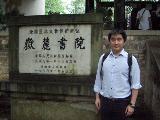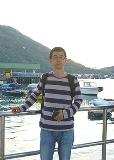您当期的位置:首页 >> 课程详情 >> BETS完型填空试题
课程介绍
BETS完型填空试题
第一节 单项填空
1.He is ______ a writer.
A. failure as B. a failure as C. the failure for D. a failure with
2.– can you come on Monday or Tuesday?
– I'm afraid ______ day is possible.
A. either B. neither C. any D. some
3.Dr. Black comes from either Oxford or Cambridge. I can't remember ______.
A. where B. there C. which D. what
4.In the centuries _____, Egypt became one of the most advanced civilizations on earth.
A. followed B. tat was followed C. which was following D. which followed
5.To enter his house is like ______ a small museum.
A. to enter B. entering C. entered D. enter
6.The local government cut down their costs ______ 30 percent.
A. at B. by C. for D. with
7.I'm reading his ______ novel.
A. best-selling B. best-sold C. best-sale D. best-sell
8.It's rude of you to shout _______ the room.
A. beyond B. through C. across D. over
9.People are more likely to stay _______ 30 miles of _______ they were born.
A. in … where B. at … what C. within … what D. within … where
10.After searching for half an hour, she realized that her glasses ______ on the table all the time.
A. were lain B. had been lain C. have been lying D. had been lying
11.Facts show that as many as 50 percent of patients do not take drugs ______ directed.
A . like B. as C. which D. so
12.I walked too much yesterday and ______ are still aching now.
A. my leg muscles B. my muscles of leg
C. my leg's muscles D. my muscles of the leg
13.He will have ______ 30 by the end of this year.
A. turned B. become C. got D. taken
14.Macao ______ its return to China in December, 1999.
A. watched B. found C. saw D. noticed
15.This hotel _______ $60 for a single room with bath.
A. charges B. demands C. prices D. claims
第二节 完形填空
My father waved me goodbye and the bus (16)_____. My first country journey then began. The man sitting next to me was a road engineer. He said that (17)_____ by bus was an excellent way to (18)_____ road for him. We passed many villages on the way and stopped once (19)_____ to buy cold drinks, (20)_____ it was very hot. The countryside was brown and dry and there were long (21)_____ with no people or villages in (22)_____. We also stopped once at some road works, (23)_____ made my traveling companion very (24)_____.
Most of us were dozing in the afternoon heat (25)_____ we were (26)_____ by a sudden noise which (27)_____ a shot from a gun. As the bus swerved(突然转向) and then stopped (28 )_____ the side of the road, I remembered all the horrible stories I had read about bands of robbers who used to attack travelers on (29)_____ roads like this. Many of (30)_____ people looked as bewildered and frightened as I (31)_____.
My neighbor, (32)_____ , reassured me. “Nothing (33)_____, only a (34)_____ tyre. But we (35)_____ while he changes the wheel.”
16. A. set in B. set off C. set D. set up
17. A. traveling B. going C. judging D. coming
18. A. investigate B. repair C. explore D. test
19. A. and two B. or twice C. or two D. and twice
20. A. because B. since C. now that D. when
21. A. extensions B. ways C. stretches D. periods
22. A. view B. vision C. sight D. eyes
23. A. as it B. which C. so that D. thus
24. A. upset B. depressed C. calm D. excited
25. A. when B. where C. while D. the moment
26. A. waken B. awake C. woke D. woken
27. A. sounded as B. sounded like C. sounded with D. sound as if
28. A. to B. onto C. at D. besides
29. A. desert B. deserted C. dessert D. desserted
30. A. the other B. other C. another D. the
31. A. as I was looked B. as I must have looked
C. as I must have been looked D. as I look
32. A. therefore B. although C. however D. furthermore
33. A. to be worried B. to worry C. to be worried about D. to worry about
34. A. flat B. broken C. wrong D. burst
35. A. will have been waiting B. will have waited
C. shall need wait D. shall have to wait
第三部分 阅读理解
A
What will man be like in the future-in 5000 or even 50,000 years from now? We can only make guesses, of course, but we can be sure that he will be different from what he is today. For man is slowly changing all the time.
Let us take an obvious example. Man, even five hundred years ago, was shorter than he is today. Now, on average, men are about three inches taller. Five hundred years is relatively short period of time, so we may assume that man will continue to grow taller. Again, in the modern world we use our brains a great deal. Even so, we still make use of only about 20% of the brain's capacity. As time goes on, however, we shall have to use our brains more and more, and eventually we shall need larger ones! This is likely to bring about a physical change to the head, in particular the forehead, will grow larger.
Nowadays our eyes are in constant use. In fact, we use them so much that very often they become weaker and we have to wear glasses. But over very long period of time it is likely that man's eyes will grow stronger.
On the other hand, we tend to make less use of our arms and legs. These, as a result, are likely to grow weaker. At the same time, however, our fingers will grow more sensitive because they are used a great deal in modern life.
But what about hair? This will probably disappear from the body altogether in course of time because it does not serve a useful purpose any longer. In the future, then, both sexes are likely to be bald.
Perhaps all this gives the impression that future man will not be a very attractive creature to look at! This may well be true. All the same, in spite of all these changes, future man will still have a lot in common with use. He will still be a human being, with thoughts and emotions similar to our own.
36. The passage mainly tells us that____.
A. man's life will be different in the future
B. future man will look quite different from us
C. man is growing taller and uglier as time passes
D. man's organs' functions will be one the wane
37. What serves as the evidence that man is changing?
A. Man has got stronger eyes now than he ever had.
B. Man's hair is getting thinner and thinner.
C. Man's arms and legs have become lighter and weaker.
D. Man has been growing taller over the past 500 years.
38. The change in man's size of forehead is probably because____
A. he makes use only 20 % of the brain's capacity.
B. his brain has grown larger over the past centuries.
C. the other 80% of his brain will grow in due time.
D. he will use his brain more and more as time goes on.
39. What is true about a human being in the future?
A. He is hairless because hair is no longer useful.
B. He has smaller eyes and wears better glasses.
C. His fingers grow weaker because he doesn't have to make use of them.
D. He thinks and feels in different way.
40. It is implied that ____.
A. human beings will become less attractive in the future.
B. less use of a bodily organ may lead to its degeneration
C. human beings hope for a change in the future life
D. future life is always predictable.
B
With the steady increase in the amount of leisure time that people enjoy today, the importance of businesses that deal with leisure products and services is also steadily increasing. One of the biggest such industries is the tourist industry. Providing transportation and accommodations for tourists —— and guides, brochures, souvenirs —— is one of the major industries in many countries. Since people are now having longer vacations and are more and more interested in seeing other parts of the world, this business will no doubt continue to grow. Another industry obviously devoted to leisure is entertainment. Movies, TV shows, concerts and plays are usually intended for our leisure. The same can be said of most books, except textbooks. Professional sports make money because people pay to watch them in their free time. This list could be greatly extended. But even among these industries, we have mentioned only part of the picture. The people who make the TV sets and build the theatres and tourist hotels are as much a part of the leisure industry as the singers or the hotel clerks.
41. What makes leisure business important according to the passage?
A. People's leisure time is increasing.
B. More and more people begin to show great interests in seeing other parts of the world.
C. Improved transportation and accommodation conditions.
D. Longer vacations are offered than before.
42. What do we know about entertainment from the passage?
A. It is the biggest leisure industry.
B. Movies, TV shows, concerts and books are usually intended for our leisure.
C. People are usually reluctant to pay to watch professional sports.
D. Making TV sets and building theatres are also part of entertainment industry.
43.What's main idea of this passage?
A. With people having more leisure time, tourist industry becomes the biggest industry in many countries.
B. With people having more leisure time, entertainment industry becomes one of the major industries in many countries.
C. With people having more leisure time, leisure business is becoming more important in economic life.
D. With people having more leisure time, leisure business list is being extended.
C
Thirty years ago not many people would have dreamed of doing the repairs and decorations in their own homes. In those days labor was fairly cheap and most people would have thought it worthwhile to employ a professional painter and decorator, unless of course they were either very hand up or were in the trade themselves. Today, however, it is quite a different story. Men and women in all walks of life turn their hands to all sorts of jobs round the house including painting, papering, putting up shelves and wall units, and tiling walls and floors. Some people with no professional training of any kind have even successfully built their own houses. These jobs have been made easier today by the introduction of prepared materials, which require the minimum amount of skill to use. In every high street through out Britain nowadays there is at least one “Do-it-Yourself” shop containing a vast range of timber, tiles, paints, wallpapers and floor coverings besides tools of every description including power drills and many accessories. “Do-it-Yourself” is a booming business; all these shops do a roaring trade and look like continuing to do so. Probably the main reason for the craze is the high cost of present-day labor and the shortage of building firms willing to do small jobs.
44.Why did people employ professional workers to decorate homes thirty years ago?
A. Because they could not do it themselves.
B. Because professional workers were very cheap.
C. Because they had no time.
D. Because professional workers could do much better.
45.Thirty years later what changes took place?
A. People could do everything themselves.
B. Few people chose to be a professional worker
C. People with no professional training successfully built their own houses.
D. New expensive materials required no skills at all.
46.What caused the DIY craze?
A. Young people liked to follow the fashion.
B. “Do-it-Yourself” is a booming business.
C. There were fewer building companies.
D. High cost of professional workers.
47. What is the speaker telling us ?
A. How DIY comes into being.
B. Changes in building.
C. Changes in housing.
D. Great changes in these thirty years







